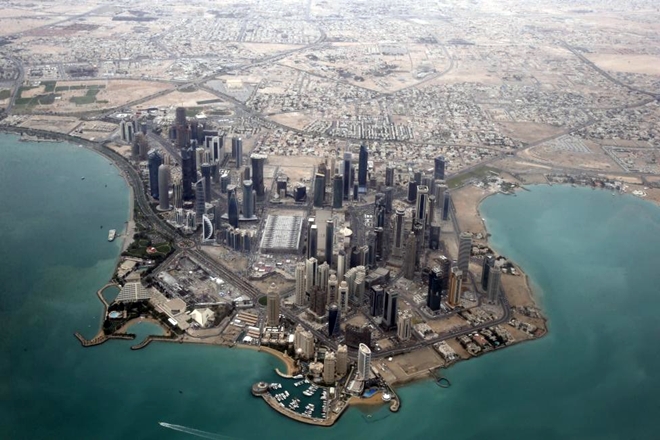Doha/Dubai: International businesses are being caught in the crossfire of Qatar’s dispute with its Arab neighbors as it delays shipments, lengthens travel times and prompts contingency plans in case the crisis deepens.
The feud between Arab powers threatens to undermine the region’s progress in positioning itself as business friendly and raises concerns that some firms may be forced to pick sides. Saudi Arabia, the United Arab Emirates, Bahrain, and Egypt cut diplomatic ties with Qatar on June 5 and imposed economic sanctions, accusing it of funding terrorism, a claim Qatar rejects.
Many multinational businesses, from builders to law firms and banks, have a base in Dubai from where they serve the region, including Qatar.
For William Grieve, a Bahrain-based businessman with consulting work in Manama and Doha, his weekly 40-minute flight to Qatar is now a 10-hour journey via Kuwait.
“When two elephants fight, it is the grass that suffers and that’s what’s happening now,” said Grieve.
One construction firm in Doha has been forced to bypass the port of Jebel Ali and import raw materials either directly or via Oman – and discovered that it has actually lowered costs in doing so, a sales manager at the firm said.
Governments dominate the commercial landscape of the region but they have worked hard to cultivate a business friendly image and are keen to attract foreign capital. Qatar attracted 133 billion riyals ($36 billion) in foreign investment in 2015, the latest available figure. Opportunities in the region include oil giant Saudi Aramco’s planned initial public offering in 2018, potentially the world’s biggest IPO ever; the 2022 World Cup in Qatar; and the Dubai World Expo 2020. On June 20, Attorney General Ali al-Marri said Qatar would pursue legal action against firms and individuals that caused harm to Qatar.
Some companies are already turning down business for fear of being accused of a conflict of interest. Law firms, for example, are being approached by Qatari individuals and businesses about potential class action law suits in the United States relating to the embargo.
One executive at a global engineering company, with a regional headquarters in Dubai, said his firm was making contingency plans to pay Qatar-based staff salaries through its European office if the dispute stops payments being made between Doha and Dubai.
Risks to businesses, however, could increase as the four countries that cut ties with Qatar are now stepping up pressure. Last week they issued 13 demands to Doha, including closing Al Jazeera television, curbing relations with Iran and shutting a Turkish military base.
Qatar is reviewing the list but has said the demands are not reasonable or actionable.




